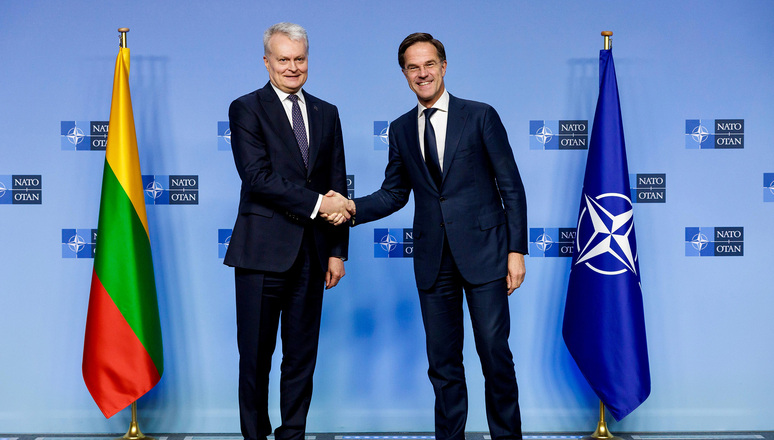NATO Secretary General commends Lithuania for defence production, support to Ukraine
NATO Secretary General Mark Rutte welcomed Lithuania’s President Gitanas Nausėda to NATO Headquarters on Wednesday (18 December 2024), to discuss NATO’s deterrence and defence and support to Ukraine.

The Secretary General thanked Lithuania for its significant contributions to NATO and shared security, including its leadership in defence spending and its efforts to boost defence production. He noted that Lithuania is “investing over 3% of GDP” in defence, adding that this figure is “set to rise to 3.5% soon”. Mr Rutte also referred to the recent agreement between Lithuania and Rheinmetall to establish a 155mm artillery shell factory in Baisogala, which, he said “highlights your commitment to ramping up defence production”. Lithuania hosts a German-led NATO forward land forces presence, which is expected to scale up to brigade level by 2027 – to include around 4,800 troops. “This will significantly strengthen our deterrence and our defence on the eastern flank of our Alliance,” said Secretary General Rutte.
The Secretary General also thanked Lithuania for its strong support to Ukraine, including €1 billion in military assistance since the start of Russia’s full-scale invasion. Lithuania has “pushed for all of us to do more, in particular to invest in Ukraine’s defence industry,” Mr Rutte said. He emphasised NATO’s continued commitment to Ukraine, referencing the pledge to provide €40 billion in security assistance in 2024 and NATO’s Security Assistance and Training Command in Wiesbaden which is already taking over responsibilities to support Ukraine.
Mr Rutte underscored the need to go further in supporting Ukraine to change the course of the war. “I know that I can count on Lithuania’s support,” he concluded.
